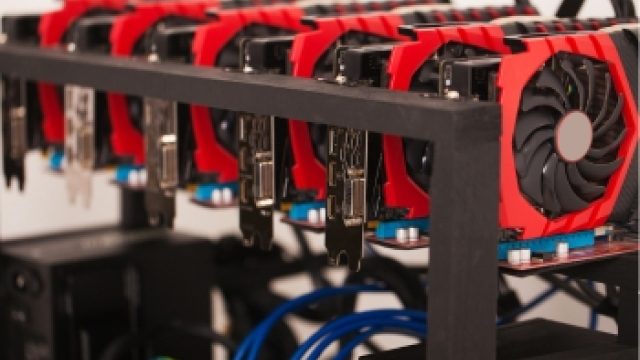In the world of PCs, one crucial component that often sparks debates among tech enthusiasts is the graphics card. Do You Need a Graphics Card for a PC?
Let’s delve into this topic from an analytical perspective and understand the role of graphics cards in today’s computing landscape.
Do You Need a Graphics Card for a PC?
To answer this question, we must first grasp the purpose of a graphics card.
A graphics card, also known as a GPU (Graphics Processing Unit), is responsible for rendering images and videos on your computer’s display.
While most modern CPUs come with integrated graphics, dedicated graphics cards provide a significant boost in graphical performance.
So, Do You Need a Graphics Card for a PC? The short answer is, it depends on your computing needs.
If you primarily use your computer for basic tasks like web browsing, email, and word processing, integrated graphics should suffice.
However, if you’re a gamer, video editor, 3D artist, or engage in GPU-intensive tasks, a dedicated graphics card becomes essential.
Graphics Card Necessity in Different Scenarios
Let’s explore various scenarios to understand when a graphics card is necessary.
Scenario 1: Gaming Performance without a Graphics Card
Imagine this scenario: You’re an avid gamer eagerly waiting to play the latest AAA title on your PC. However, you’re using a system with integrated graphics.
In this case, gaming without a dedicated graphics card would result in a lackluster experience.
Modern games demand substantial graphical processing power, and integrated graphics might struggle to keep up with the demands of visually stunning and fast-paced games.
Scenario 2: When You Might Not Need a Dedicated Graphics Card
On the other hand, there are instances where a dedicated graphics card might not be a priority.
For instance, if you primarily use your PC for office work, web browsing, or watching videos, integrated graphics will handle these tasks effortlessly.
Moreover, many entry-level PCs and laptops are designed for casual use without the need for a separate graphics card.
Related Article: Top 7 Best Graphics Card for Fallout 4 (Used by Experts!)
Advantages of Having a Dedicated Graphics Card
Now that we’ve discussed scenarios, let’s highlight the advantages of having a dedicated graphics card.
1. Enhanced Gaming Performance
One of the most significant advantages of a dedicated graphics card is its ability to enhance gaming performance.
With a powerful GPU, you can run games at higher resolutions and smoother frame rates, resulting in a more immersive and enjoyable gaming experience.
2. GPU-accelerated Workloads
Beyond gaming, certain applications benefit from GPU acceleration.
Tasks like video rendering, 3D modeling, and machine learning can be significantly faster with a dedicated graphics card, allowing professionals to work more efficiently.
3. Multiple Display Support
Dedicated graphics cards often come with multiple video outputs, enabling users to connect multiple monitors simultaneously.
This feature is invaluable for productivity, as it allows you to extend your desktop and multitask seamlessly.
4. Future-Proofing Your System
Investing in a high-quality graphics card ensures that your system remains capable of handling upcoming graphics-intensive software and games for years to come.
Factors Affecting Graphics Card Choice
When considering a graphics card, several essential factors come into play:
1. Performance Needs
Evaluate your performance requirements based on your intended usage.
Enthusiast gamers and professionals will require more powerful GPUs, while casual users might find mid-range or entry-level graphics cards sufficient.
2. Budget Constraints
Graphics cards can vary significantly in price. Set a budget and explore options within that range to find the best balance between performance and affordability.
3. Compatibility
Ensure the graphics card you choose is compatible with your existing system.
Factors like physical size, power requirements, and motherboard compatibility should be considered.
4. Future Upgradability
If you plan on upgrading your graphics card in the future, consider the compatibility with newer technologies and potential bottlenecks in your system.
Related Article: How To Build A Small Form Factor Gaming Pc
Upgrading Graphics Cards: Compatibility and Considerations
When upgrading your graphics card, compatibility is crucial.
Ensure that your motherboard supports the new graphics card, and the power supply can provide sufficient wattage to handle the GPU’s requirements. Additionally, check for driver compatibility with your operating system.
Moreover, before upgrading, assess your performance needs.
If your current graphics card meets your requirements, it might be more cost-effective to wait for newer models or significant performance leaps before making the switch.
Alternative Solutions: External Graphics Cards
For laptop users or those with limited upgrade options, external graphics cards offer a viable solution.
External GPU enclosures, connected via Thunderbolt or USB-C, allow you to augment your laptop’s graphics performance significantly.
This opens up gaming possibilities and GPU-intensive tasks that were previously limited by integrated graphics.
Power Efficiency and Environmental Impact
As graphics cards become more powerful, power efficiency becomes a crucial concern.
High-performance GPUs can consume a substantial amount of electricity, leading to increased energy costs and environmental impact.
Manufacturers are now making efforts to improve power efficiency and reduce carbon footprints through advancements in GPU architecture and manufacturing processes.
When selecting a graphics card, consider its power efficiency ratings and the impact it may have on your electricity consumption.
Cooling and Noise Considerations
Graphics cards can generate a significant amount of heat, especially during heavy workloads and gaming sessions.
Proper cooling solutions are essential to ensure the GPU operates at optimal temperatures, which not only improves performance but also prolongs the card’s lifespan.
Some graphics cards come with sophisticated cooling systems, including multiple fans and heatsinks.
However, these solutions can also contribute to increased noise levels. If a silent PC setup is a priority for you, consider graphics cards designed for quiet operation.
Future Trends in Graphics Processing
The world of graphics processing is ever-evolving, with ongoing research and development.
Advancements in GPU architecture, the introduction of ray tracing technology, and improvements in artificial intelligence for rendering are just a few trends shaping the future of graphics cards.
As we move forward, we can expect even more powerful GPUs with better power efficiency, enabling even more realistic and immersive experiences in gaming and professional applications.
Recommendations Based on User Needs
In conclusion, the necessity for a graphics card in a PC depends on the individual’s computing requirements.
If gaming, video editing, or other GPU-intensive tasks are on your agenda, a dedicated graphics card is a worthy investment. For casual users and office-oriented tasks, integrated graphics will suffice.
When selecting a graphics card, consider factors such as performance needs, budget, compatibility, and future upgradability.
Additionally, keep an eye on external graphics card solutions if you have a laptop or limited upgrade options.
Always stay informed about the latest trends in graphics processing, as the technology landscape is ever-changing.
Choose a graphics card that aligns with your needs and budget, and you’ll be well on your way to an enhanced computing experience.
FAQs About Do You Need a Graphics Card for a PC
Can I run PC without a graphics card?
Yes, it is possible to run a PC without a dedicated graphics card, especially if your CPU has integrated graphics capabilities.
However, the graphical performance will be limited, and you may not be able to run graphically demanding applications or games.
Do PCs come with graphics cards?
Not all PCs come with dedicated graphics cards. Many basic or budget PCs use integrated graphics, which are built into the CPU.
However, gaming PCs or high-performance systems often come with dedicated graphics cards for better graphical processing.
Is a graphics card only for gaming?
No, graphics cards are not just for gaming. While they are commonly associated with gaming due to their ability to handle high-resolution graphics and complex calculations, graphics cards are also used for tasks like video editing, 3D modeling, scientific simulations, and machine learning.
Why is a graphics card needed?
A graphics card is needed to handle the processing and rendering of images, videos, and animations on a computer.
It offloads the graphical calculations from the CPU, resulting in better performance and smoother visuals, especially in graphically intensive applications and games.
How much does a graphics card cost?
The cost of a graphics card can vary widely depending on factors such as brand, model, performance, and market demand.
Entry-level or budget graphics cards can start from around $100, while high-end or enthusiast-grade cards can cost several hundred or even thousands of dollars.
How much GB of graphics card do I need?
The amount of VRAM (Video RAM) on a graphics card depends on your specific requirements.
For general tasks and casual gaming at 1080p resolution, 4GB or 6GB of VRAM should be sufficient.
However, for higher resolutions, gaming at ultra settings, or professional work like video editing or 3D rendering, 8GB or more VRAM is recommended.
Why are graphics cards so expensive?
Graphics cards can sometimes be expensive due to various reasons.
Factors such as high demand, limited supply, cryptocurrency mining, and manufacturing costs can influence the pricing.
Additionally, the continuous advancement of technology and the introduction of new features contribute to the pricing of higher-end graphics cards.
Is RTX a gaming card?
Yes, RTX (Real-Time Ray Tracing) is a feature introduced by Nvidia in their graphics cards, primarily aimed at enhancing gaming experiences.
The RTX series of cards incorporates hardware acceleration for ray tracing, enabling realistic lighting and reflections in supported games and applications.
Which is the best graphics card?
The best graphics card depends on your specific needs and budget.
As of my knowledge cutoff in September 2021, some popular high-performance graphics cards were Nvidia GeForce RTX 3090, RTX 3080, and AMD Radeon RX 6900 XT.
However, it is recommended to research the latest models and compare their specifications and reviews to find the most suitable one for your requirements.
Can we install a graphics card in a laptop?
In most cases, it is not possible to install a dedicated graphics card into a laptop.
Laptops generally come with integrated graphics, and their hardware is not designed to be easily upgradeable.
However, some high-end gaming laptops do have the option for external graphics card enclosures, allowing you to connect a desktop graphics card externally for enhanced performance.
Does a graphics card improve PC performance?
Yes, a graphics card can significantly improve PC performance, especially in tasks that require graphical processing.
By offloading graphics-related calculations from the CPU to the graphics card, it allows for smoother visuals, faster rendering, and improved overall performance in applications, games, and other graphically demanding tasks.
What is the difference between a GPU and a graphics card?
A GPU (Graphics Processing Unit) is a specialized electronic circuit that performs calculations necessary for rendering images, videos, and animations.
A graphics card, on the other hand, is the physical component that houses the GPU along with other components like VRAM, power connectors, and cooling solutions.
The graphics card acts as an interface between the GPU and the rest of the computer system, providing the necessary connections and resources for graphical processing.
Final Thoughts About Do You Need a Graphics Card for a PC
In conclusion, the need for a graphics card in a PC depends on your specific requirements and use cases.
If you engage in graphically demanding tasks like gaming, video editing, or 3D rendering, a dedicated graphics card can greatly enhance performance and provide smoother visuals.
However, for basic tasks and casual computer usage, integrated graphics found in CPUs can be sufficient.
Consider your budget, desired graphical performance, and the types of applications you plan to run when deciding whether or not to invest in a graphics card.
Ultimately, it’s about finding the right balance between your needs, budget, and desired computing experience.


